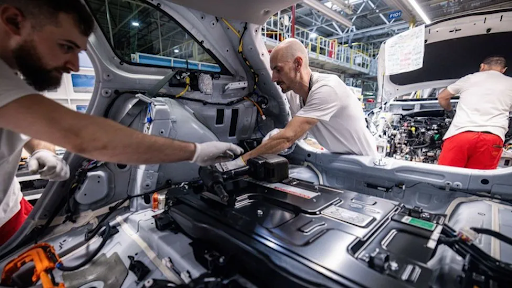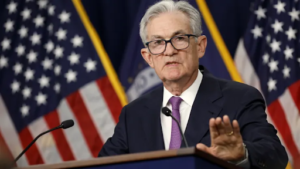In a strategic move to reshape the electric vehicle (EV) landscape, the United States has introduced stringent regulations that significantly curtail the involvement of Chinese components in electric cars marketed within its borders. This bold initiative aligns with the government’s push for domestic EV production, leveraging significant financial incentives to bolster American industry. However, this approach has sparked a heated debate over its potential impact on the EV adoption rate and the industry’s future.
The core of these new regulations is the integration of government incentives for electric cars manufactured in the United States, explicitly designed to reduce reliance on Chinese-produced batteries and minerals, which currently dominate the market. Critics argue that such restrictions may decelerate the widespread adoption of electric vehicles.
Highlighting the geopolitical implications, U.S. politicians have voiced concerns about the economic and security risks of over-dependence on Chinese manufacturers. This stance has scrutinized planned collaborations, like the one between Ford and CATL, China’s leading battery manufacturer.
In its efforts to stimulate the U.S. EV industry, Congress passed a climate law last year that earmarks billions in tax incentives and funding. Central to this law is a tax incentive of up to $7,500 per vehicle for buyers of American-made electric cars. This incentive is part of a broader strategy that the White House claims has already attracted nearly $100bn in private investment towards the U.S. EV sector.
A crucial aspect of the law, taking effect in 2024, is the exclusion of vehicles from tax credit eligibility if they contain battery components manufactured or assembled by a “foreign entity of concern.” By 2025, this will extend to cars with critical materials sourced or processed by such entities. The definition of a “foreign entity of concern” includes companies headquartered in or controlled by China, Russia, Iran, or North Korea.
John Podesta, a senior adviser to President Biden, emphasized the administration’s commitment to reversing the trend of offshoring jobs and factories, mainly to China. He highlighted the latest guidance from the Treasury and the Department of Energy as a critical step in ensuring that the future of EVs is secured within American manufacturing capabilities.
The Alliance for Automotive Innovation (AAI) noted that only about 20 of over 100 electric vehicle models in the U.S. currently qualify for the tax credit. AAI praised the clarity brought by the new guidelines, which suggest that partnerships with Chinese firms based in the U.S. might not violate the new rules. Additionally, the AAI appreciated the two-year exemption for certain “trace” materials.
The U.S.’s latest policy on electric vehicles marks a significant shift in the automotive industry, aiming to fortify domestic production while addressing security and economic concerns related to foreign dependencies. While this move promises to reshape the industry, it also brings complexities and challenges that require a delicate balance between fostering innovation and maintaining geopolitical stability. As the U.S. navigates this transition, the global EV market is poised to watch and adapt to these transformative changes.























+ There are no comments
Add yours